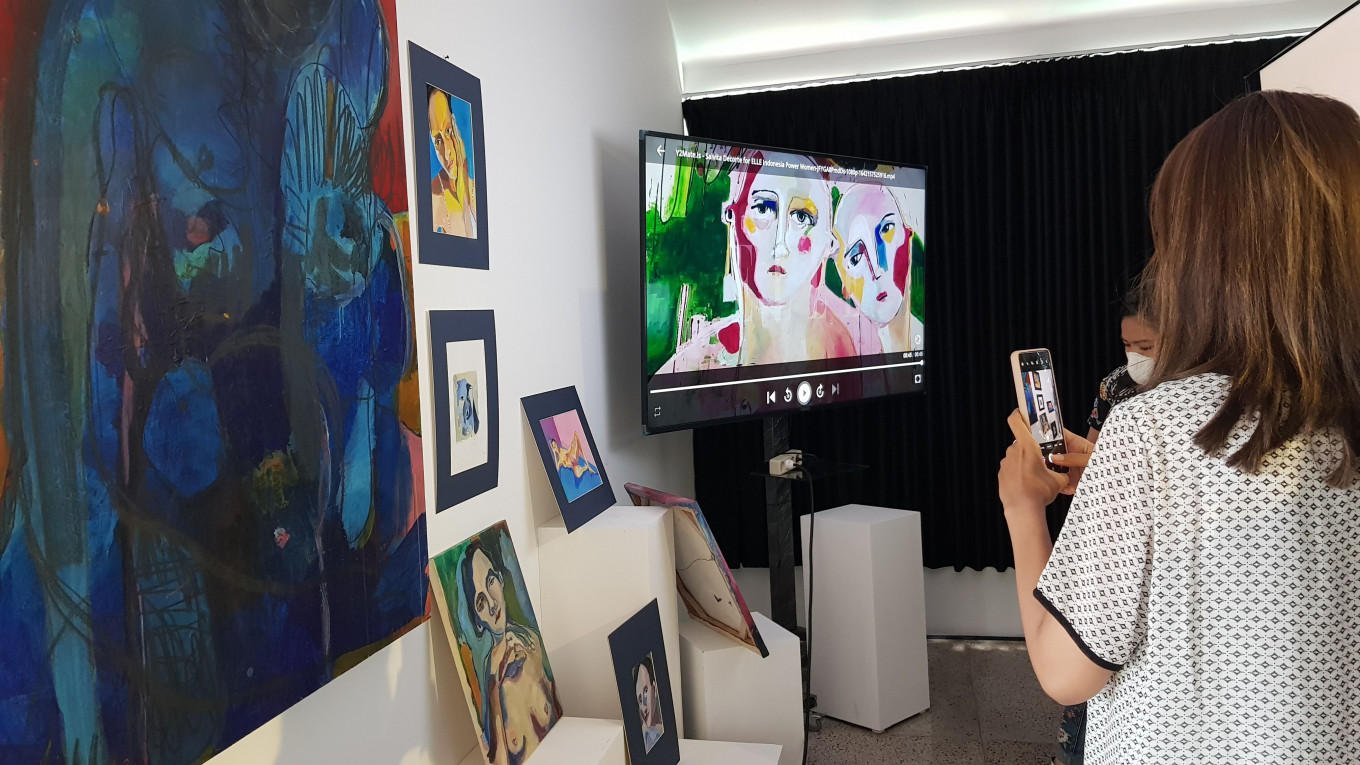Bali center stage in thriving crypto, NFT market
The government and industry players are looking at Bali as the blockchain hub of the country, where crypto investment is booming and NFT marketplaces are disrupting the established art scene.
Change Size

I
ndonesia’s most popular tourist destination might soon also be known as the blockchain hub of the country, as the number of crypto investors soared last year and as non-fungible tokens (NFT) have taken the island by storm.
Crypto exchange Tokocrypto said Bali was its second-largest market, after the much larger Java Island. The number of Tokocrypto users in Bali skyrocketed to 28,000 people last year from only 900 in 2020.
Tokocrypto CEO Pang Xue Kai said the high number of users in Bali had prompted the company to set up a crypto community space called T-Hub in the province.
Opened on Jan. 20, it is the second such space opened by the company, after a first branch in Jakarta.
“We [chose] Bali because there are a lot of digital nomads here, and the number of crypto investors has multiplied exponentially. Bali has great potential, and there is already a crypto community of sorts here,” he said on Jan. 21.
The T-Hubs are places for crypto enthusiasts to learn more about the digital asset market and discuss the latest blockchain technology developments.
Kai went on to explain that Tokocrypto would like to eventually turn the T-Hubs in “technology hubs” for blockchain software development.
In these hubs, people could, for instance, learn solidity, an object-oriented programming language for writing smart contracts to be used on crypto blockchains.
“We can also connect these blockchain developers to the projects and start-ups in our incubator, TokoLaunchpad, or in our accelerator program,” he added.
Kai went on to say that the company aimed to establish T-Hub in four or five more cities this year, including Bandung, Surabaya and Manado.
“We do not just identify Bali as a blockchain zone,” he said. “We will be working alongside the government to build a safe blockchain technology sandboxing environment,” he said.
A regulatory sandbox refers to special permission granted to developers to temporarily deploy relatively untested technology in a confined space, so as not to cause wide-scale disruption or damage for instance to financial systems.
Read also: Tokocrypto, BRI Ventures launch accelerator for blockchain start-ups
According to the Trade Ministry, crypto asset transactions grew 14-fold last year to Rp 859 trillion (US$59.9 billion) from Rp 60 trillion in 2020.
Deputy Trade Minister Jerry Sambuaga said he expected the crypto asset market to double or triple this year as more people became aware of digital assets.
Indonesia had 11.2 million crypto investors last year, marking a rapid increase from around 4 million in 2020, according to the Futures Exchange Supervisory Board (Bappebti), which falls under the ministry.
Read also: Crypto transactions could triple in 2022: Trade Ministry
“Going forward, artists can also benefit from utilizing blockchain technology, as they can [protect their artworks] against piracy,” Jerry said.
Similarly, Fadjar Hutomo, the undersecretary for industry and investment at the Tourism and Creative Economy Ministry, said cryptocurrency, as well as other digital assets, could become alternative revenue streams for local artists.
“Artists used to just sell their art and would not get any additional money if the value of their artworks rose,” he said on Friday. “With blockchain, a whole new business model can be developed, so they can enjoy [royalties].”
Last year, Bali’s tourism and creative economy body collaborated with a local start-up to create Baliola.com, the first Bali-based NFT marketplace.
“With NFTs, the original artists will get royalties even if their art has been resold many times. This is a system that guarantees the owner’s intellectual rights,” Baliola CEO I Gede Putu Rahman Desyanta was quoted as saying by Tribunnews.
The marketplace was established to help Balinese artists export their creations, he said, adding that he believed NFT marketplaces would become as mainstream in the next decade as social media are today.
NFTs are units of data stored on digital ledgers, such as a blockchain, and they can be used to certify the authenticity or ownership of digital artworks and other products.
According to its website, Baliola sells NFTs of animation, illustrations, music, paintings and other types of artworks. As of August last year, it hosted digital works from 300 artists.
NFTs enjoyed a surge in popularity in Indonesia after a young man calling himself Ghozali became an overnight sensation by selling hundreds of his selfies as NFTs online – and reportedly making more than Rp 1 billion in the process.
After Ghozali’s rise to fame, many Indonesians began selling their own photos of food, clothing and even personal identity cards (KTPs) on NFT marketplaces.









